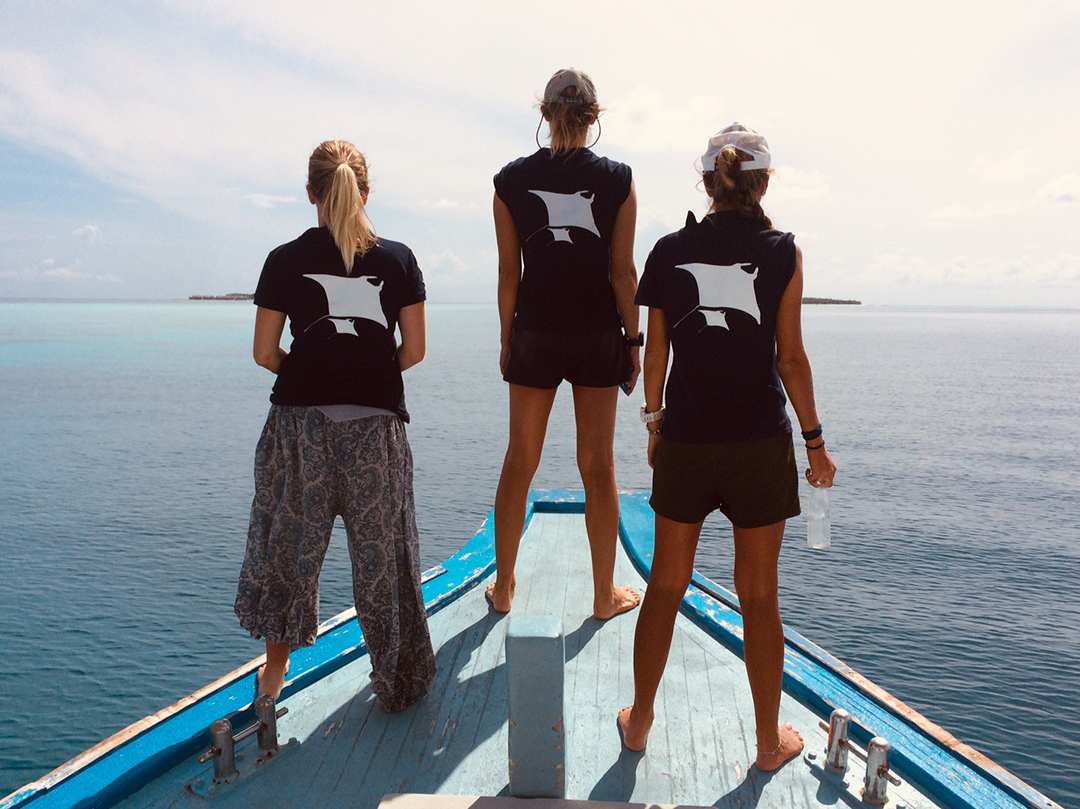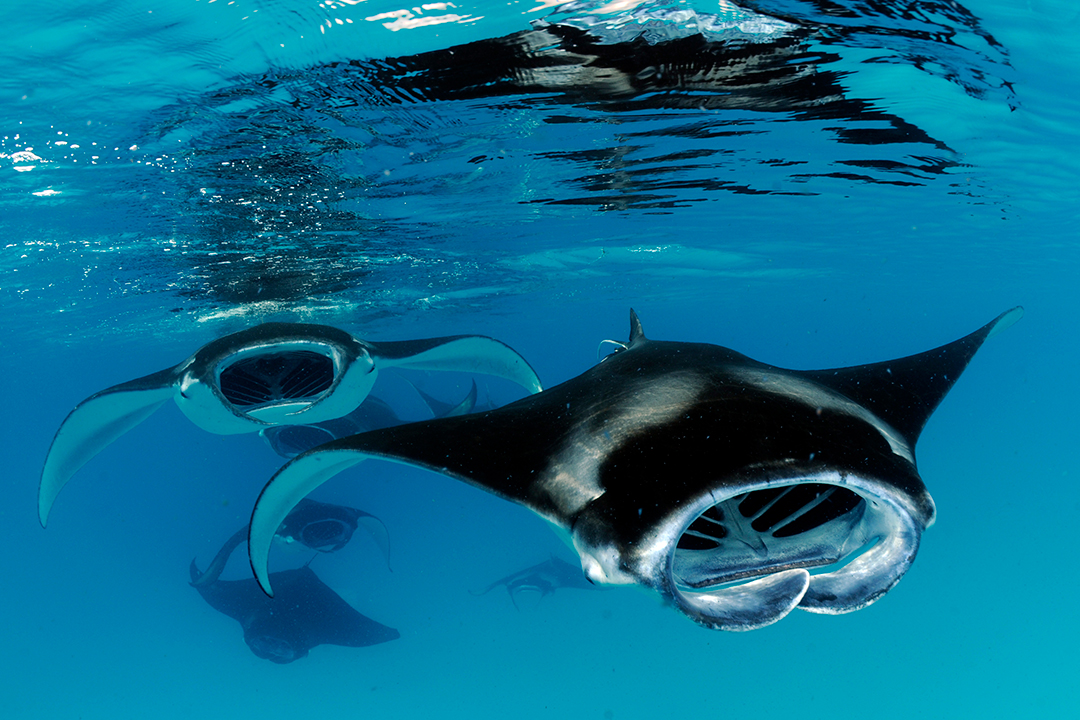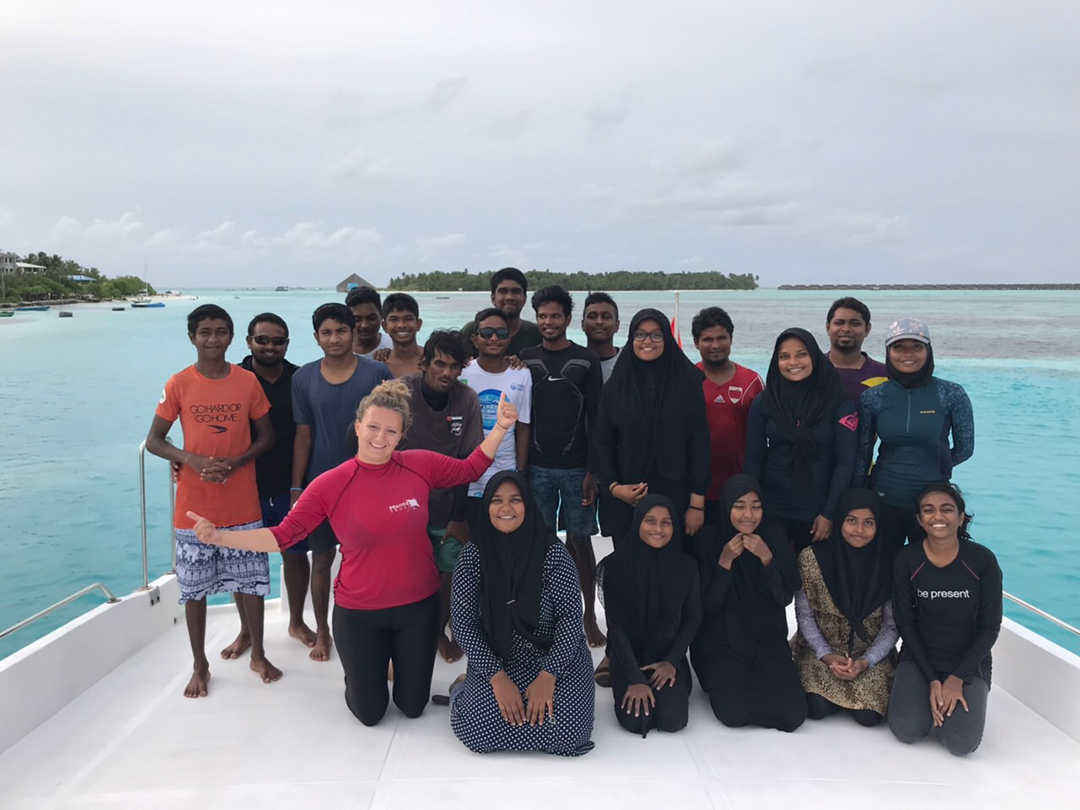How is COVID-19 affecting researchers? Part 1.
How is COVID-19 affecting manta and devil ray projects around the world? Part 1.
The World has changed dramatically over the last few months as we have found ourselves unexpectedly in the middle of a global pandemic, and a global recession seems inevitable. These changes have of course had a huge impact on how the Manta Trust is able to operate, and they now threaten the efforts of many of small but crucial mobulid research and conservation projects that make up our global network. Virtually all fieldwork has ceased globally, and tourism activities have ground to a halt at all our project locations worldwide, including our largest research project in the Maldives.

Maldivian Manta Ray Project team looking for mantas. Photo © Manta Trust.
Maldives Update from Project Leader Tam Sawers
The Maldivian Manta Ray Project (MMRP) consists of a countrywide network of marine biologists, tour operators, dive instructors, community members and roughly a dozen team members based at six different resorts across the Maldives, some of which have been supporting our project work for over a decade. The resort partnerships are our funding agents and without their invested interest we would not have project bases nor would we be in a position to financially support a team of researchers to carry out the work central to our project’s philosophy – Research-Education-Collaboration.

Reef Manta Ray at Angafaru Falhu Baa Atoll in the Maldives. Photo by Guy Stevens| © Manta Trust
COVID-19 poses financial challenges to those prosperous resorts, many of which have had to pause our longstanding partnerships to deal with the current constraints, resulting in our team of researchers returning home on unpaid leave. Where possible we have used the project’s emergency funds to help support our MMRP family during these challenging times but there is a limited reserve and this is quickly running dry. Our researchers are now no longer able to conduct their routine monitoring, collecting data on the nations manta population and the factors that influence or threaten their survival. For the first time in over a decade, our research efforts have come to a complete halt. It is vital that our research efforts continue to further our understanding; this gap we now see in our dataset will ultimately slow efforts to effectively protect the manta rays.
Key to our project’s ethos is outreach and education- made possible through resort sponsorship. We are fortunate to have the opportunity to introduce guests, resort staff and local communities to the underwater world and the beloved manta rays- through manta excursions, interactive workshops and a well-developed marine education programme. Our training also extends to recent school-leavers and university graduates to whom we offer internship programmes and provide those interested in pursuing academics or careers in marine conservation with guidance, support, and a well-developed skillset essential to this role. Many of these apprentices have also been hired to work within the project.
Even in these challenging times, our network of support has remained strong and while the excitement of interesting discoveries and new projects are quiescent at this time we do hope that these connections will re-ignite when we are able to resume our research work back in the Maldives.

Manta Trust Marine Education Programme, North Male Maldives. Photo by Jessica Haines | © Manta Trust.
The COVID-19 pandemic and resort research base closure threaten our project. To lose the MMRP would be the end of an era- one that has played an integral role in gaining protective legislature for the manta rays and their habitats, not just in the Maldives but internationally. An end to a period where we connected with the local communities and inspired love and appreciation for the environment. A time when we taught woman and children to swim and relished in their sheer happiness and excitement as they were introduced to manta rays for the very first time. It will mean an end to an era of harmony, respect and determination to protect these animals and their habitats. We are concerned, but our memories keep us on a path of optimism. Someone recently reminded me that nothing can keep us away from our love for the manta rays, and hopefully, we can continue to be able to work towards their conservation for many years to come.
Read part two here.
